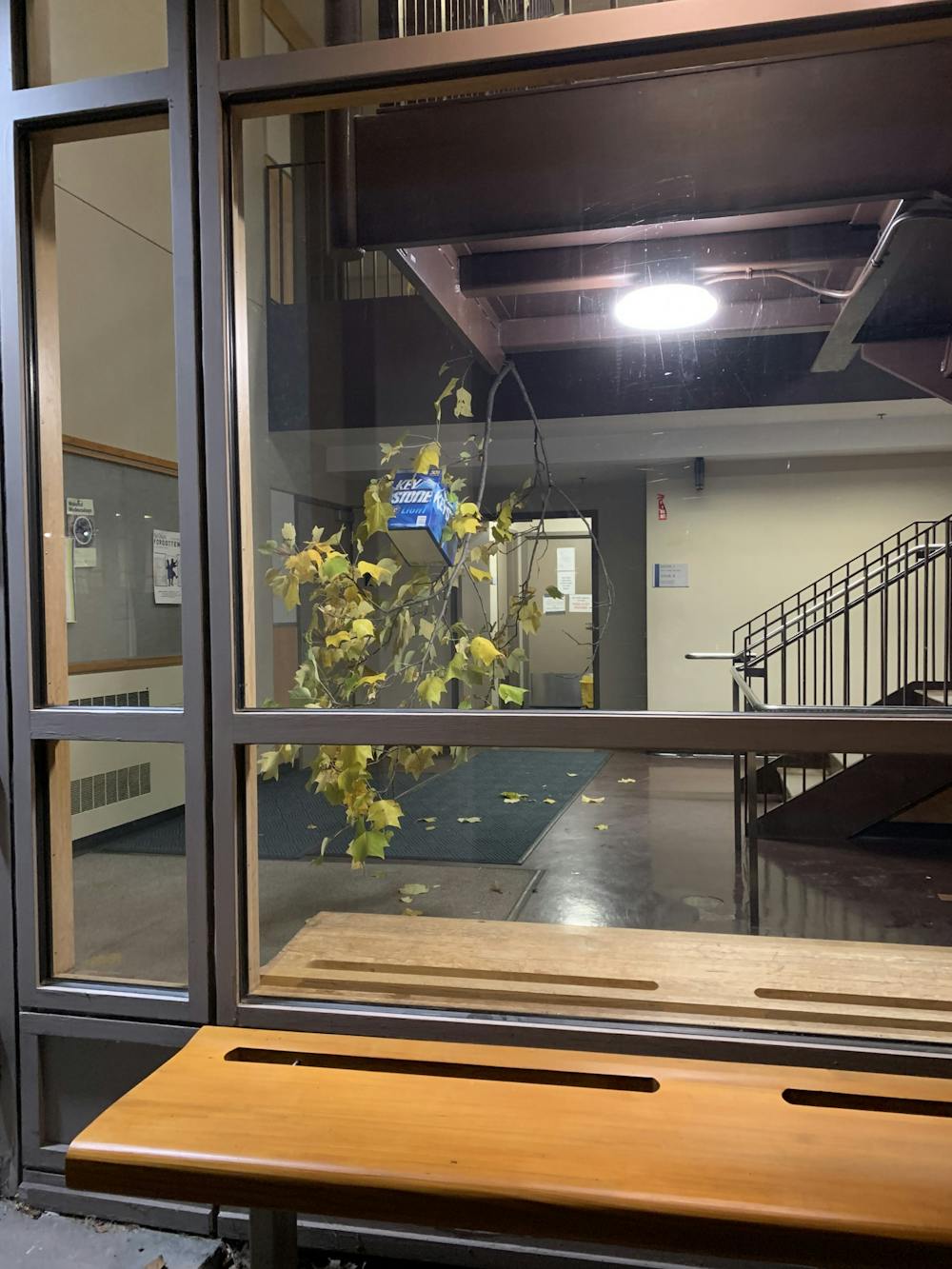Urine in the elevators, smashed pumpkins, spilled trash, spit on the doors, shattered glass and vomit in the stairwell confronted custodial staff in the Atwater A and B residences on the morning following Halloween weekend.
Long-time custodial staff member Liza Rheaume, who is assigned to work at Atwater A and B, detailed the immense destruction of the holiday weekend. Though the damage was significant, according to facilities staff, these instances are becoming increasingly common at the college — particularly in upperclassmen residences. Last Sunday evening, Rheaume received an email from a coworker who had cleaned up a lot of urine in the elevators in the Atwater buildings.
“He warned me that Monday would be a fun day,” she said sarcastically, “And because it was Halloween weekend and Homecoming weekend, sadly these are things that are expected.”
In email correspondence with The Campus, college landscape horticulturist Tim Parsons described the destruction as “nothing out of the ordinary for after Halloween.”
The facilities department does not investigate these damages and the perpetrators remain unknown, though presumably they are students. When facilities staff encounter damages, they generally write up a work order, sometimes take photos, and forward the information to Esther Thomas, the college residence director in charge of Atwater and other upperclassmen residence halls. Thomas was out of the office at the time of this story and the ResLife office declined to comment.
Rheaume emphasized that the damage over Halloween weekend was far from an isolated incident. On Monday, Nov. 8, she was called to the Chateau by a panicked professor who was missing all of the chairs in her classroom because they had been packed into the sole elevator in the Chateau, damaging it.
“We walked down the hallway and the elevator door was open and the whole thing was packed full — the lounge chairs, an outdoor Adirondack chair. They broke the elevator. A light was pulled out, and a hole was punched in the wall in the stairwell,” Rheaume said.
When incidents like these occur, facilities sends a charge to the building. The charge is split evenly among the building’s residents. Rheaume explained that because these fines, which might in theory deter future damage, are shared by everyone who lives in the building, they end up not amounting to much and do not have much of an impact.
Importantly, Rheaume said, those most impacted by the charge are the students who did not take part in the destruction.
“It’s not free stuff. It costs people’s money and it costs people’s labor,” Rheaume said, “And impacts more than just our department.”
Supervisor of Custodial services Roger Norton sorted through photos of torn down signs, broken to-go containers, and smashed hand sanitizer units from nights of partying in upperclassmen residences.
“It’s hard to remember from one week to the next what was what,” Norton said.
Norton explained that the Atwater buildings tend to have particularly bad damage because of an inherited mindset and understanding of what it means to occupy those spaces.
In fall 2019, significant damage in the Atwater buildings and in neighboring first-year dorm Allen Hall, including signs ripped off doors and urination in elevators, prompted community meetings and charges to students.
“It’s almost like a rite of passage to live [in Atwater],” Norton said. He said it feels like students think, “‘We move into this suite and we have to be as good or better at throwing parties then the last year.’ It’s almost like you have to maintain that way of living if you’re in that space.”
Norton qualified this statement by saying that this persistent culture does not apply to all suites nor to all students. He also said that he believes that some of the issues stem from the ResLife staff being overburdened by the pandemic and less capable of focusing on the more day-to-day issues.
Both Norton and Rheaume as facilities employees are overburdened as well.
“We come to work coming from different environments and have things that happen in our home lives. Then you come to work and you have to face that and sometimes it can just be overwhelming,” Rheaume said.



